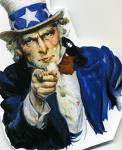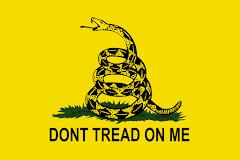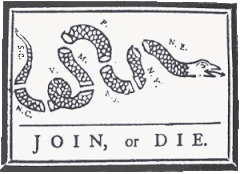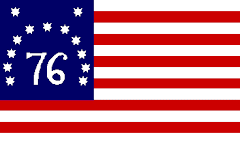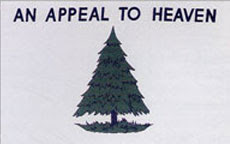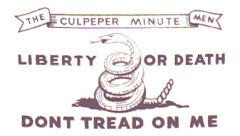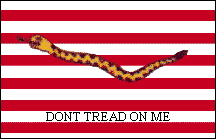My Dear Fellow Patriots:
It was 222 years ago on this date that George Washington, who had been inaugurated as our nation’s first President some months earlier, noted in a diary entry dated October 15th, 1789, that it was a miserable, rainy morning. It was a Thursday, and he was embarking on his first official tour as the duly-elected Chief Executive under the recently ratified United States Constitution.
His party of eight left the official residence at 3 Cherry Street in New York City, near the river, and proceeded north along Broadway. After passing the old City Hall at the corner of Wall and Nassau, where the Federal Building is today, they entered the Post Road - which would take them all the way to Boston. Milestone #1 was on the Bowery, near Canal Street.
Sometime later, somewhere between Milestone #5 and #6, they would have passed a public house at a location we know as the intersection of 3rd Avenue and 66th Street. The tavern was called The Dove. We can only wonder if Washington was aware, as his carriage rolled slowly up the muddy thoroughfare, of how near he passed to the spot where, thirteen years earlier, a young soldier in civilian clothes died for a country that was barely two months old, in service to the man who was now President.
Let us part with that entourage and watch it wend its way north without us; we’ll linger near this spot, this Dove tavern. In 200 years, it will be occupied by a fine restaurant called The Sign of the Dove, but here in the 18th century it is a rude structure in rural Manhattan a few miles beyond the northern edge of the city. Adjacent to it is a British artillery park, cannon lined up in neat rows, with rough sleeping quarters for the men who fire them and wagons to carry their ammunition. Here is the office, too, of Captain John Montresor, the chief engineer of General William Howe, commander of the British forces.
It is the morning of September 22nd, 1776, and a young man is marched up the Post Road and into the park. He swollen feet are bare, his hands are tied behind his back, the day is sweltering, and Montresor takes pity on him and has him escorted into his tent and orders his hands untied. The young man is there to die; he is to be hanged as a spy. He is 21 years old.
He was a schoolteacher, he tells Montresor, a graduate of Yale College, and he asks, pleads, for some paper and ink. He fears being buried in an unmarked grave, his fate unknown, his family forever waiting and hoping, his mission unfulfilled. He pens two letters: one to his mother, the other to a fellow officer. He has no way of knowing if they will ever be delivered. Montresor is deeply moved by the young man, and wonders about his motivations. We see them speak, but of what we cannot know; their conversation is lost in the swirls and eddys of time. Perhaps they speak of honor, or morality, or eternity, or God, or country.
A voice barks outside, and Montresor looks at his charge and nods. The young man rises and moves to the opening of the tent. Montresor follows him out, watches sadly as the provost marshal once again binds the teacher’s wrists behind his back. He requests a clergyman, but he is denied. He requests a bible, and is denied yet again. His legs lose strength and buckle, and so he is dragged the few yards to the place of his execution. There, a boy, a thirteen-year-old former slave named Bill, has tied a rope to the branch of a tree with a stout knot, and has fashioned a noose.
Connecticut and family likely flash through condemned man's consciousness, and perhaps his thoughts turn to his General, and he hopes that in some way he has been helpful to the glorious cause as he is dragged onto the bed of a wagon that sits next to the tree, and is made to stand on its shaky boards. He can see that Montresor is watching, his face etched with sadness and compassion, and now the coarse noose is fitted snugly around his neck. He has little time. He feels the baking heat of the sun. He breathes; he looks again at the engineer; he speaks for the last time.
The next day Captain John Montresor, with a small party of men, under a flag of truce, will travel on horseback to Harlem Heights and deliver word to the rebel Captain William Hull of the hanging of a spy. He will tell Hull of the young man’s noble comportment and dignity. And he will tell Hull of the young man’s final words.
“My only regret…is that I have…but a single life to lose for my country.”
Nathan Hale died, his mission incomplete, not knowing if he had served his General and his country well. He did. He had no way of knowing that he would inspire generations of Americans, that he would teach us about the true essence of courage and love of country.
If we know his story, if we heed his lesson, we will never quit this fight. We will suffer the aspersions that are cast our way and then shed them because they do not matter, and we will never quit this fight. We will accept defeat if comes, disappointment if it comes, disillusionment if it comes and even abandonment if that is our fate.
But if we know the story of young Nathan Hale, we will never quit this fight. Never.
Yours in Liberty,
Frank Santarpia
Staten Island, NY

